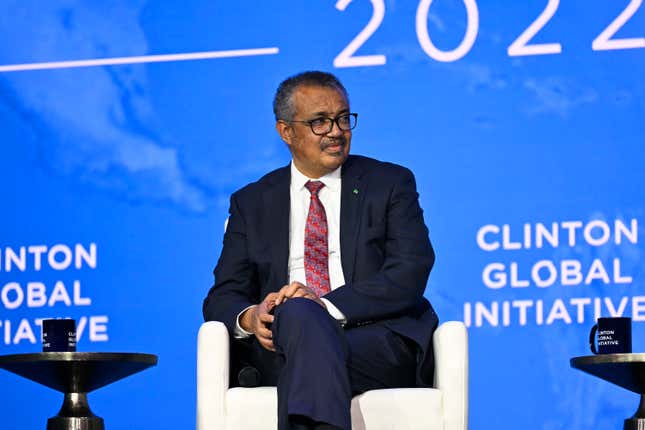
It looks like monkeypox is finally getting a new name. The disease, which has been the subject of a lot of controversy since being declared a global emergency earlier this year, is finally losing its miserable moniker.
In a November 28 statement, the World Health Organization (WHO) announced that it will start referring to the disease as mpox, out of concerns about the “racist and stigmatizing language” that popped up everywhere as the news of rising cases spread around the world. WHO says the name change comes after a “series of consultations with global experts.”
Monkeypox first got its name in 1958, when Danish researchers identified the disease in monkeys (real creative, right?). Back then, cases were mostly confined to Central and West African countries. But as the disease spread beyond Africa to the Western world, most confirmed cases were found in gay, bisexual or other men who have sex with men. Cases peaked over the summer of 2022, leading the WHO to declare monkeypox a global health emergency in late July.
As more people learned about the disease, more hate-filled language found its way into the general discourse. And many organizations around the world pressed WHO Director-General Tedros Adhanom Ghebreyesus to rename the disease, including the New York City Department of Health and Mental Hygiene.
“NYC joins many public health experts and community leaders who have expressed their serious concern about continuing to exclusively use the term ‘monkeypox’ given the stigma it may engender, and the painful and racist history within which terminology like this is rooted for communities of color,” the department wrote in a letter.
According to the WHO’s “Best Practices for the Naming of New Human Infectious Diseases,” disease names should not include geographic locations, people’s names, culture, population, industry, or occupational references or terms that incite undue fear.
The WHO says it plans to phase out the name “monkeypox” over the next year.

